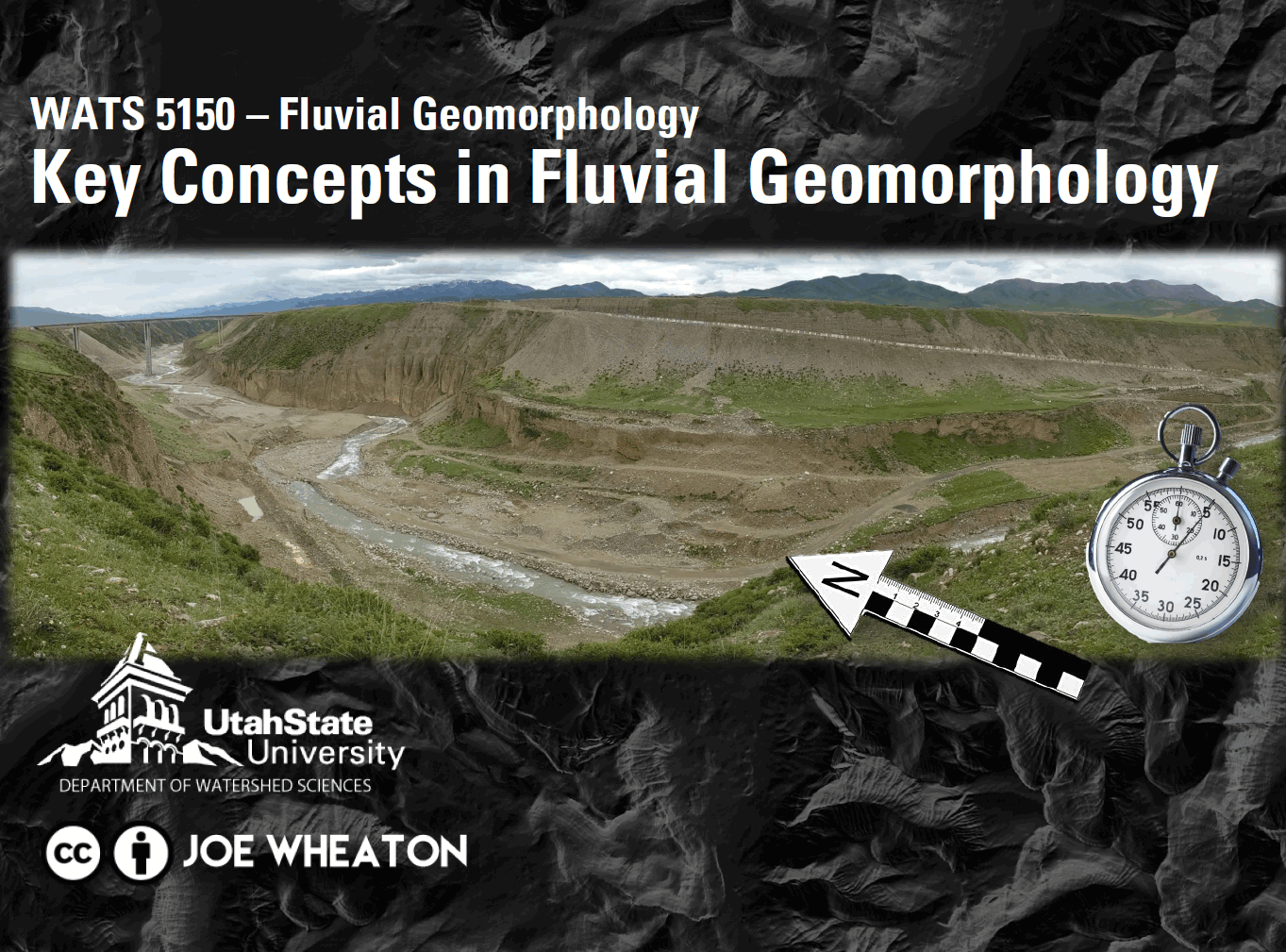2. Key Concepts
Background & why we're covering it
Chapter 2 on 'Key concepts in river geomorphology' will:
- Elaborate on the hierarchal spatial scales we introduced in Chapter 1
- Introduce temporal scale constructs in evaluating riverscapes
- Introduce some common concepts used by geomorphologists in making spatio-temporal interpretations of these dynamic systems
We will make reference to many of these concepts throughout the course and it will be assumed you are clear on these foundational concepts.
Learning Outcomes
- LO 1. Differentiate influence of external controls (e.g. climate and catchment) vs. local controls on form and process.
- LO 2. Apply principles of geomorphic analysis to a diversity of riverscapes.
- LO 3. Recognize the primary controls on riverscape diversity, in which distinctive suites of physical and biotic processes (behavior) help shape the form and character of those landscapes.
Resources
Lecture
Module 2 Lecture Playlist
Slides

Lecture Slides - Module 2
Key Concepts in Fluvial Geomorphology
Related Reading
This module focus on: CHAPTER TWO: Key concepts in river geomorphology from:
- Fryirs KA, Brierley GA. 2013. Geomorphic Analysis of River Systems: An Approach to Reading the Landscape, First Edition. Blackwell Publishing Ltd.: Chichester, U.K.